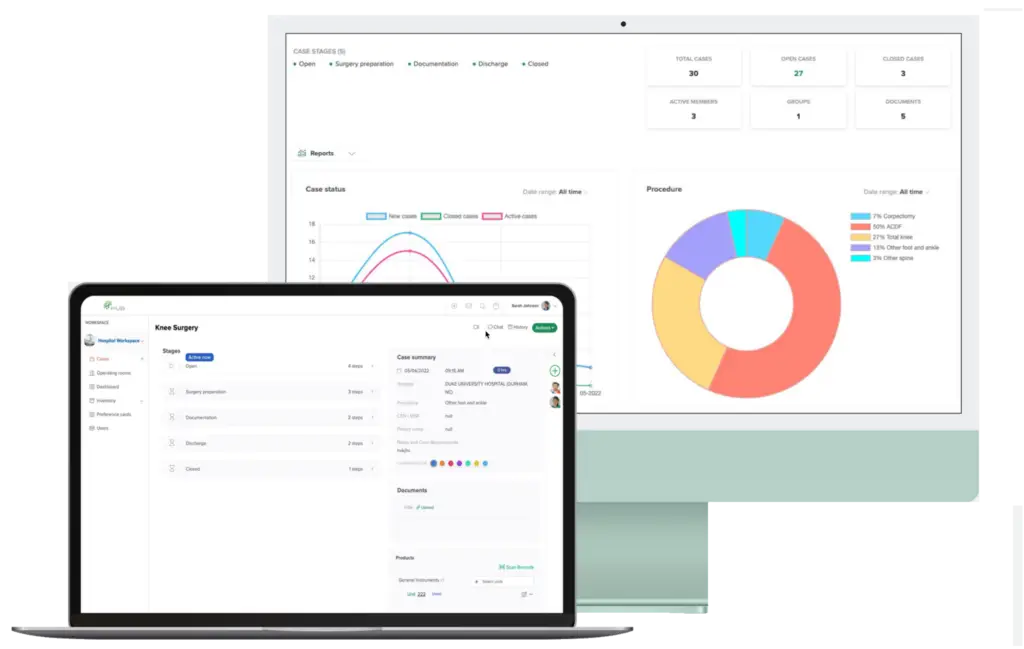As a surgery scheduler, your role is crucial in ensuring that surgeries run smoothly and efficiently. With so many moving parts and important details to keep track of, it can be overwhelming to stay organized and on top of everything. That’s why having a comprehensive surgery scheduler checklist is essential for success. Here are the key elements to include in your ultimate surgery scheduler checklist.
Pre-Appointment Preparation
Before the patient even arrives for their surgery, several important tasks need to be completed. These include:
- Verifying Insurance Coverage: Confirm that the patient’s insurance covers the procedure and obtain any necessary pre-authorization.
- Pre-Operative Appointments and Tests: Schedule any required pre-operative tests or consultations.
- Medical History and Allergies: Review the patient’s medical history, including allergies and current medications, to ensure the surgical team is well-prepared.
Day of Surgery Checklist
On the day of surgery, numerous details need to be managed to ensure a successful procedure. Key tasks include:
- Patient Arrival: Confirm the patient’s arrival time and ensure they are checked in promptly.
- Paperwork: Verify that all necessary paperwork, including consent forms, is completed and signed.
- Surgical Team Readiness: Ensure that the surgical team, including the surgeon, anesthesiologist, and nurses, are prepared and ready.
- Equipment and Supplies: Check that all necessary surgical instruments, medications, and specialized equipment are available and in working order.
Post-Operative Care Checklist
After the surgery is complete, there are critical tasks to ensure the patient’s smooth recovery:
- Follow-Up Appointments: Schedule any required follow-up visits.
- Post-Operative Instructions: Provide the patient with detailed care instructions for their recovery.
- Home Care Arrangements: Organize any necessary home care services or medical equipment.
- Insurance Billing: Ensure the patient’s insurance is billed correctly and all documentation is accurately completed and filed.
Communication Checklist
Effective communication is essential for a successful surgery. Key elements include:
- Team Updates: Keep all members of the surgical team informed of any changes or updates.
- Patient and Family Communication: Provide the patient and their family with necessary information and address any concerns they may have.
Emergency Preparedness Checklist
Being prepared for emergencies is vital. Key items include:
- Emergency Contact Information: Have contact details for the patient’s family and the surgical team.
- Emergency Protocols: Ensure that emergency protocols are in place and that all team members are familiar with them.
- Emergency Equipment: Verify that all necessary emergency equipment is readily available and in good working condition.
Continuous Improvement Checklist
To maintain and enhance efficiency, continuous improvement is essential. Steps include:
- Feedback Collection: Seek feedback from patients and the surgical team to identify areas for improvement.
- Process Evaluation: Regularly review and assess the surgery scheduling process.
- Implementing New Strategies: Incorporate new strategies or technologies to enhance efficiency and success.
By incorporating these key elements into your surgery scheduler checklist, you can ensure that your surgeries run smoothly and efficiently, leading to better outcomes for patients and a successful surgical practice. Do you have any other important items to add to this checklist? Let us know in the comments.
How HUB Healthcare Can Help
HUB Healthcare provides a comprehensive solution designed to enhance communication in healthcare, streamline care coordination, and improve overall workflow efficiency. Our platform includes features such as medical case management software, healthcare document management, and healthcare analytics to ensure that all aspects of patient care are optimized. By leveraging HUB Healthcare’s robust tools, organizations can reduce workflow bottlenecks, automate repetitive tasks, and facilitate better collaboration among healthcare providers. This not only improves work quality but also enhances patient outcomes, making HUB Healthcare an essential partner in achieving healthcare excellence. Visit our Help Center to learn more about optimizing your healthcare workflows.






